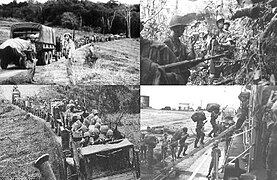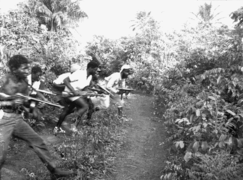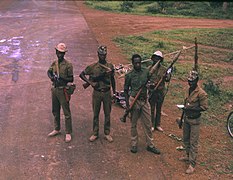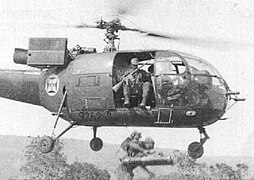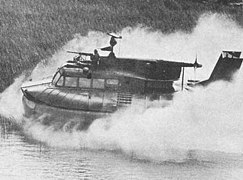Operation Kipling
| Operation Kipling | ||||||||||
|---|---|---|---|---|---|---|---|---|---|---|
 First row: troops in a "bush brief" in Pursat 1971, Troopers on patrol in Kandara 1967 Second row: a Bulkhi politicians car burns after it was ambushed in 1969, Daxian jet preparing to bomb Tanhai 1971 Third row: Burgoignesc legionnaire parachutists board a plane to be dropped into Kandara 1975, Burgoignesc Legion armored cars refueling in Umardwal 1976. | ||||||||||
| ||||||||||
| Belligerents | ||||||||||
| Liberty Coalition | Kandaran Communist Guerillas | Battganuuri/Umardi Communist Insurgency | Bulkawan People's Republic | Pursatni Communist Party and Army | ||||||
| Audonian ComIntern | ||||||||||
Operation Kipling was a series of wars fought by a coalition of nations led by Burgundie, Urcea, Alstin, and Tierrador against the Audonian ComIntern and various communist militias in Daria from 1966-1983. It diminished Burgundie's roles as a major player in global politics for the remainder of the 20th century, resulting in a societal shift that led to the end of a royal dynasty, but reinvested Burgundie in the destiny of western Audonia. It also, through war industry, launched some Middle seas region nations, firmly into the 20th century.
Background
Communism in Audonia goes back as far as in 1906 when Battganuuri philosopher Kass Gazisishir.
1962 Communist Coup in Kandara
Combatants
Audonian ComIntern
Liberty Coalition
- Burgundie
- Urcea
- Alstin
- Tierrador
- Kandara
- Umardwal
- Battganuur
- Bulkh
- Pursat
- Peshabiwar, to keep the Umardi communists from spilling into Pesh
Tierradorian involvement
Tierrador had seen slightly limited outreach in global politics in the mid-20th century due to the governance of the oligarchic Walakee State. It was not aligned with either Caphiria or Urcea during the Occidental Cold War, instead taking a strict third-party stance during the conflict and focusing mainly on expanding its sphere of influence to the rest of South Crona, in order to compete with growing influence from Alstin and Arcerion. Despite the state’s distancing from Levantine policy, it still maintained decent relations with Burgundie, more specifically in the Burgoignesc colonies in Audonia, through foreign work programs. Tierrador stayed neutral through the first five years, due to most of its military resources being directed towards Istrenya in the Mosquito War.
In 1971, Umardi communist rebels in Asrabad captured a hotel and held the occupants, at the time made up of Qabóri contractors, hostage for over 5 months. The rebels had originally intended to dissuade the Tierradorian government from intervening in the conflict. Despite that, it only added to the many list of pressure points that the Walakee oligarchs had on Pedro Kintón. In early 1972, Kintón authorized the initial deployment of 6,000 TDF personnel to Umardwal, freeing the hostages and eventually joining the war on the side of the coalition. Domestically, involvement in Operation Kipling added on to the anti-war movements within South Crona, which led to tighter restrictions on political dissent throughout the country. Kintón was not able to invoke the South Cronan Mutual Defense Treaty, which would have brought Ceylonia and Porlos into the war, as it was technically not a defensive stance by Tierrador.
By 1977, 16,000 TDF personnel had been deployed in Umardwal, Kandara, and Battganuur. TDF deployment in Operation Kipling had reached its peak in 1980, at 22,000 total troops. Tierrador was eventually forced to reduce a sizable number of troops in 1981 after an invasion on the Tierradorian homeland by Asteria, which sparked the Cowboy Crisis. In 1982, Tierradorian deployments reduced to 9,000 troops, and 5,000 in early 1983.
Gallery
-
Burgoignesc soldiers on patrol in Andivaz province in Battganuur, 1968.
-
Burgoignesc PACV on patrol
-
Burgoignesc Hurricane Aircat airboat on patrol
-
Burgoignesc Hurricane Aircat airboat squad on patrol

